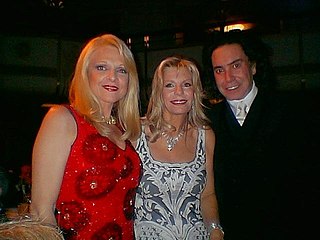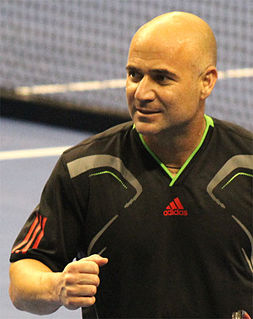A Quote by Christopher Hitchens
Many parents and teachers have become irritated to the point of distraction at the way the weed-style growth of 'like' has spread through the idiom of the young. And it's true that in some cases the term has become simultaneously a crutch and a tic, driving out the rest of the vocabulary as candy expels vegetables.
Related Quotes
I don't believe, in the end, that there is any such thing as no style. Even a very neutral, plain style, one that doesn't use colloquialisms, lyrical flourishes, heavy supplies of metaphor, etc., is a style, and it becomes a writer's characteristic style just as much as a thicker, richer deployment of idiom and vocabulary.
Any child may go through periods during which they become less outspoken with their parents or teachers. But girls, like boys, live in many different worlds - they have their friends and their classroom and their parents - and within these different domains, they may have different levels of expressiveness.
There's a term, agape, you hear used a lot with charismatic religious groups, that it's this more pure love of caring, of sharing of concern and understanding. I think players and teams have to come to that at some point in the season to become successful. Maybe not "personal friends," but they become teammates at the highest level of that term.
I love driving through Western Massachusetts, out through the Berkshires, when the road is empty and it's a nice day. I don't like driving home on Memorial Drive at 5:45 or 6:45 at night when it's crowded and stressful. I think that's true of most people, and the goal of automated driving is to take the stressful part of driving out of the task.
It's no accident, I think, that tennis uses the language of life. Advantage, service, fault, break, love, the basic elements of tennis are those of everyday existence, because every match is a life in miniature. Even the structure of tennis, the way the pieces fit inside one another like Russian nesting dolls, mimics the structure of our days. Points become games become sets become tournaments, and it's all so tightly connected that any point can become the turning point. It reminds me of the way seconds become minutes become hours, and any hour can be our finest. Or darkest. It's our choice.
When I was a TV director working on Judd Apatow's show Undeclared. I was surrounded by so many young people. People like Seth Rogen, who was 9 years old or something. It was just a ridiculous amount of talented young people. I started to think I'd like to see a young-love movie, but not one done in that glossy, Hollywood, high-concept manner we've become accustomed to. One that was, for lack of a better way of putting it, a little more ambiguous, '70s-style, where everyone was flawed, middle-class characters.
I think life is cotton candy on a rainy day. For those who grew up with cotton candy the old-fashioned way, it is very delicate. Pre-made cotton candy that has preservatives is not nearly as good or true. True cotton candy is sugar, color, and air and it melts very quickly. That was the metaphor - it can't be preserved, it can't be put aside, it can't be banked. It has to be experienced, like life.
[When we drop our agendas] we begin to cultivate a mind of true goodness and compassion, which comes out of a concern for the Whole. As we live out of such a mind, we become generous, with no sense of giving or of making a sacrifice. We become open, with no sense of tolerance. We become patient, with no sense of putting up with anything. We become compassionate, with no sense of separation. And we become wise, with no sense of having to straighten anyone out.



































